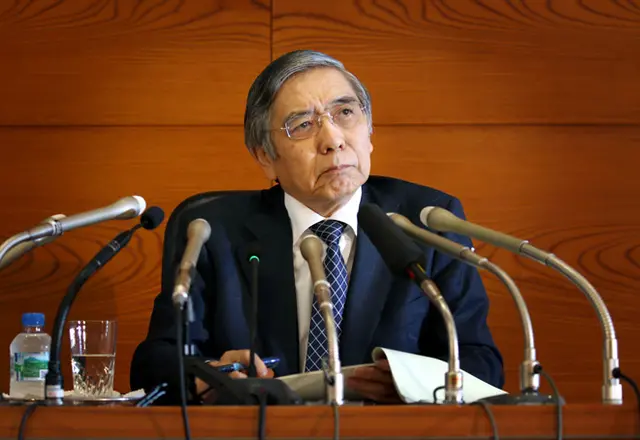The Bank of Japan governor acknowledged for the first time that his much-ballyhooed target of 2 percent inflation will unlikely be met before his five-year term ends in spring 2018.
“It is regrettable,” BOJ Governor Haruhiko Kuroda said at a news conference on Nov. 1, after the central bank moved the targeted time from “by the end of fiscal 2017” to “around fiscal 2018.”
The postponement was announced after the central bank’s policy meeting on Nov. 1 passed up on taking additional monetary easing measures.
When Kuroda took over the BOJ governor’s post in March 2013, he vowed to steer the economy out of the deflationary trend that has hampered growth, and set an inflation target of 2 percent in around two years.
The latest postponement of the goal was the fifth--and the third this year alone--since Kuroda’s pledge to lift prices.
His “monetary easing of a different dimension,” introduced as a key element of Prime Minister Shinzo Abe’s economic growth policy, has yet to show solid signs of success.
At the Nov. 1 meeting, the central bank downgraded the average price rise for fiscal 2016, which ends in March 2017, to minus 0.1 percent from 0.1 percent forecast in July in its Outlook for Economic Activity and Prices report, which is compiled every three months.
The report also revised down the average price rise from 1.7 percent to 1.5 percent for fiscal 2017 and from 1.9 percent to 1.7 percent for fiscal 2018.
The central bank blamed a slide in crude oil prices, a slowdown in emerging economies and continuing sluggish consumption in Japan after the consumption tax rate was raised to 8 percent in April 2014 for the failure to achieve the inflation target.
Asked about his responsibility for failing to reach that goal during his term, Kuroda said, “There is no special connection between how prices will go and my tenure.”
(THE ASAHI SHIMBUN)
 简体中文
简体中文





